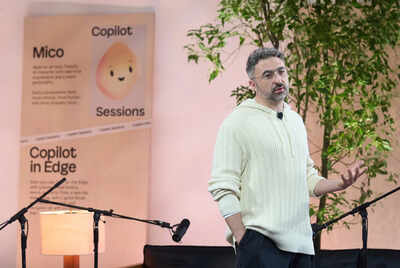Microsoft Forms Superintelligence Team Led by AI CEO Mustafa Suleyman
Microsoft is launching a specialized AI research team focused on developing superintelligence technology with a unique safety-first approach. The MAI Superintelligence Team will be led by Mustafa Suleyman, CEO of Microsoft AI, who emphasizes the company’s commitment to creating controllable, human-serving AI systems.
Key Takeaways
- Microsoft forms MAI Superintelligence Team led by CEO Mustafa Suleyman
- Team will focus on specialist AI models with minimal existential risk
- Approach contrasts with Meta’s billions-dollar investment in general AI
- Goal is practical technology that serves humanity, not infinite capability
The Superintelligence Race Intensifies
Microsoft’s move follows similar initiatives by Mark Zuckerberg’s Meta Platforms and Safe Superintelligence Inc, all targeting major AI breakthroughs. Meta has been spending billions to recruit top AI talent, including offering $100 million signing bonuses to engineers in an escalating talent war.
Microsoft’s Different Approach to Superintelligence
Unlike competitors pursuing “infinitely capable generalist” AI, Microsoft’s team will focus on specialist models designed for superhuman performance with virtually no existential risk. Suleyman expressed doubts about controlling autonomous, self-improving machines despite ongoing safety research.
“We are doing this to solve real concrete problems and do it in such a way that it remains grounded and controllable,” Suleyman wrote. “We are not building an ill-defined and ethereal superintelligence; we are building a practical technology explicitly designed only to serve humanity.”
Humanist Superintelligence Vision
The company envisions “humanist superintelligence” – technology that solves defined problems with tangible real-world benefits. This approach requires AI to consistently serve human interests rather than pursuing unlimited capability.
“Humanism requires us to always ask the question: does this technology serve human interests?” said Suleyman.
The effort depends on AI that can reason through complex problems and would require significant breakthroughs. If successful, Suleyman believes this technology could dramatically improve healthcare by detecting preventable diseases earlier, potentially increasing life expectancy and providing more healthy years for everyone.




